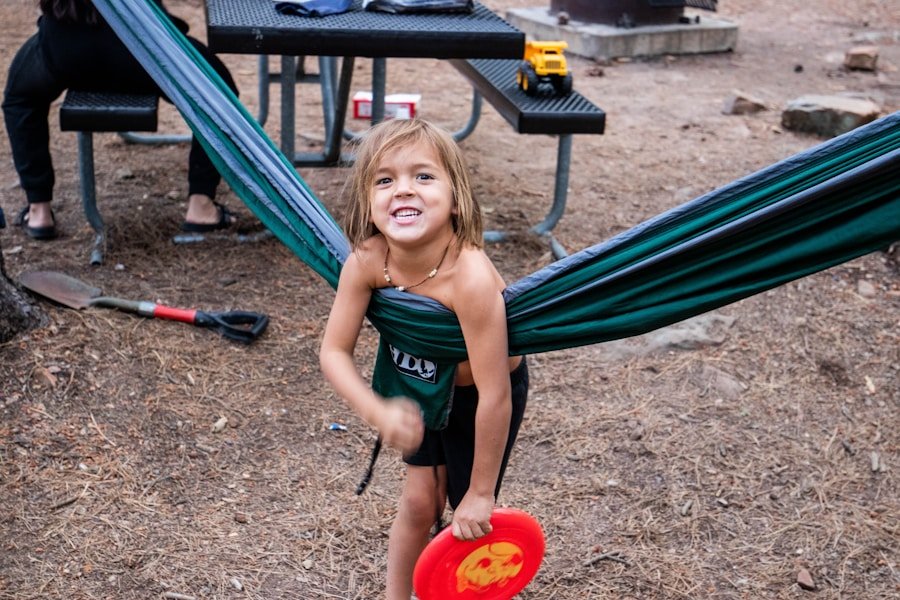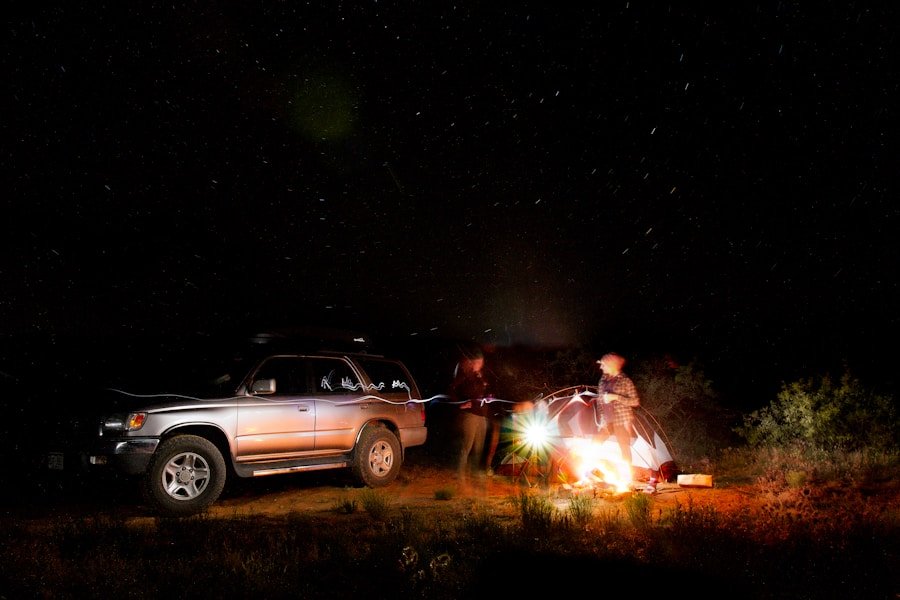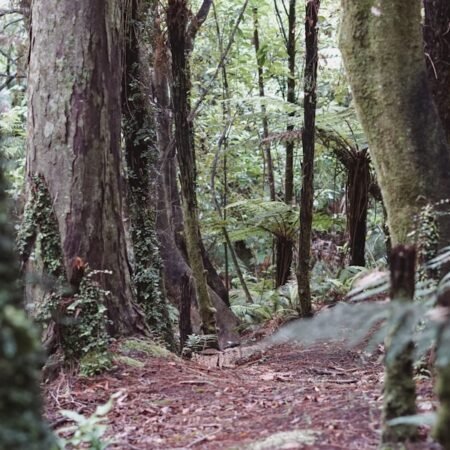When engaging in camping activities, it is crucial to adhere to the principle of leaving no trace, which entails ensuring that upon departure from a campsite, there is no visible evidence of one’s presence. This involves proper waste disposal, avoiding damage to vegetation, and leaving natural objects in their original state. Responsible camping practices are vital for preserving the natural environment’s beauty and integrity.
By adopting the principles of leaving no trace, future generations can continue to enjoy the same outdoor experiences. To achieve this, it is essential to plan ahead and prepare for the trip. This includes packing out all trash, including food waste, and disposing of it properly upon returning to urban areas.
It is also important to carefully select a campsite, avoiding fragile vegetation and sensitive habitats. Furthermore, minimizing one’s environmental impact is crucial, which can be achieved by using designated campsites and trails, and refraining from creating new ones. By following these principles, individuals can contribute to the protection of the wilderness’s natural beauty, ensuring its preservation for generations to come.
Key Takeaways
- Always clean up after yourself and leave no trace when camping to preserve the natural environment.
- Be mindful of your campsite neighbors and respect their space and privacy while enjoying the great outdoors.
- Practice wildlife awareness and coexist with animals by keeping a safe distance and not feeding them.
- Follow campfire etiquette by properly extinguishing fires and adhering to any fire regulations in place.
- Dispose of waste properly and minimize your impact on the environment while camping to maintain the wilderness for future generations.
Campsite Courtesy: How to Respect Your Neighbors in the Great Outdoors
Respecting Quiet Hours
One of the most critical aspects of campsite etiquette is keeping noise levels to a minimum, especially during quiet hours. This allows everyone to enjoy the peace and tranquility of the outdoors without being disturbed by loud music or conversations.
Being Mindful of Your Surroundings
It’s also important to be aware of your surroundings and avoid encroaching on your neighbor’s space, whether it’s with your tent, campfire, or other camping equipment. This helps to maintain a sense of community and respect among campers.
Protecting the Environment
Another vital aspect of campsite etiquette is being mindful of your impact on the environment. This means not damaging vegetation, disturbing wildlife, or leaving behind any trash or debris. It’s crucial to leave your campsite in the same condition as you found it, or even better. This includes properly disposing of waste, not damaging vegetation, and leaving natural objects where you found them. By practicing good campsite etiquette, you can ensure that everyone has an enjoyable and peaceful camping experience.
Wildlife Awareness: Tips for Coexisting with Animals in their Natural Habitat
When camping in the great outdoors, it’s important to be aware of the wildlife that inhabits the area and to coexist with them in a respectful manner. This means being mindful of their natural behaviors and habitats, and taking steps to avoid disturbing or endangering them. One of the most important things to keep in mind when it comes to wildlife awareness is to never feed wild animals.
Feeding wildlife can disrupt their natural foraging behaviors and can also make them more aggressive towards humans. It’s also important to keep a safe distance from wildlife and never approach or attempt to touch them. This not only protects the animals from harm but also ensures your own safety.
In addition to avoiding direct contact with wildlife, it’s also important to properly store food and trash to prevent attracting animals to your campsite. This means using bear-proof containers or hanging food from a tree to keep it out of reach of hungry animals. It’s also important to clean up any food scraps or trash immediately after eating to avoid attracting unwanted visitors.
By being mindful of wildlife and taking steps to coexist with them in their natural habitat, you can help protect both the animals and yourself while camping.
Campfire Etiquette: Dos and Don’ts for a Safe and Enjoyable Experience
| Common Camping Faux Pas | Outdoor Etiquette |
|---|---|
| Loud noises late at night | Respect quiet hours and keep noise to a minimum |
| Leaving trash behind | Pack out all trash and leave no trace |
| Not respecting wildlife | Keep a safe distance and observe from afar |
| Ignoring campground rules | Follow all posted rules and regulations |
| Not properly extinguishing fires | Always fully extinguish fires before leaving |
A campfire can be one of the most enjoyable aspects of camping, but it’s important to practice proper campfire etiquette to ensure a safe and enjoyable experience for everyone. One of the most important things to keep in mind when it comes to campfire etiquette is to always follow local regulations and guidelines regarding fires. This may include obtaining a permit, using designated fire rings or pits, and adhering to any fire bans or restrictions in place.
It’s also important to never leave a campfire unattended and to fully extinguish it before leaving your campsite or going to bed. Another important aspect of campfire etiquette is being mindful of the impact that your fire may have on the environment. This means using only dead and downed wood for your fire and never cutting live vegetation.
It’s also important to keep your fire at a manageable size and to avoid creating excessive smoke or ash that can be harmful to the surrounding area. By practicing proper campfire etiquette, you can enjoy the warmth and ambiance of a campfire while minimizing its impact on the environment.
Litter-Free Camping: How to Properly Dispose of Waste in the Wilderness
Properly disposing of waste is essential for maintaining a clean and healthy environment while camping in the wilderness. This means packing out all of your trash, including food scraps, and disposing of it properly when you return to civilization. It’s also important to be mindful of any waste that may be left behind by previous campers and to clean up any litter that you come across.
By leaving no trace and properly disposing of waste, you can help preserve the natural beauty of the wilderness for future generations. In addition to packing out all of your trash, it’s also important to properly dispose of human waste while camping in the wilderness. This means using designated toilets or digging a cathole at least 200 feet away from water sources, trails, and campsites.
It’s important to bury human waste at least 6-8 inches deep and to cover it with soil when finished. By following these guidelines for waste disposal, you can help minimize your impact on the environment while camping in the wilderness.
Respect for Nature: Ways to Minimize Your Impact on the Environment while Camping
Using Designated Campsites and Trails
One way to respect nature while camping is by using designated campsites and trails rather than creating new ones. This helps protect fragile vegetation and sensitive habitats from being trampled or destroyed by human activity.
Environmentally Friendly Camping Gear and Practices
Another way to respect nature while camping is by using environmentally friendly camping gear and practices. This may include using biodegradable soap for washing dishes, using rechargeable batteries instead of disposable ones, and using solar-powered lanterns or flashlights instead of fuel-burning ones.
Conserving Natural Resources
It’s also important to minimize your use of natural resources such as water and firewood by using them sparingly and conserving them whenever possible. By respecting nature and minimizing your impact on the environment while camping, you can help preserve the natural beauty of the wilderness for future generations.
Proper Trail Etiquette: Guidelines for Hiking and Exploring the Outdoors Responsibly
When hiking and exploring the outdoors, it’s important to practice proper trail etiquette in order to ensure a safe and enjoyable experience for everyone. One of the most important aspects of trail etiquette is yielding to other hikers and trail users, especially those traveling uphill or those on horseback. This means stepping aside and allowing them to pass safely without impeding their progress.
It’s also important to be mindful of your surroundings and avoid blocking the trail or creating obstacles for other users. Another important aspect of trail etiquette is being respectful of the natural environment and minimizing your impact on the trail. This means staying on designated trails rather than creating new ones, avoiding trampling vegetation, and not disturbing wildlife or their habitats.
It’s also important to pack out all trash and waste, including food scraps, and dispose of it properly when you return to civilization. By practicing proper trail etiquette, you can help ensure a safe and enjoyable experience for yourself and others while hiking and exploring the outdoors. In conclusion, practicing good outdoor etiquette is essential for preserving the natural beauty and integrity of the wilderness while camping and exploring the great outdoors.
By leaving no trace, being respectful of your neighbors, coexisting with wildlife, practicing proper campfire etiquette, properly disposing of waste, respecting nature, and practicing proper trail etiquette, you can help minimize your impact on the environment while enjoying all that nature has to offer. By following these guidelines for outdoor etiquette, you can ensure that future generations will be able to enjoy the same outdoor experiences that you have had.
FAQs
What are some common camping faux pas to avoid?
Some common camping faux pas to avoid include being too loud, leaving trash behind, not respecting quiet hours, and encroaching on other campers’ space.
How can I practice good outdoor etiquette while camping?
You can practice good outdoor etiquette while camping by respecting the environment, being considerate of other campers, following campground rules, and leaving no trace of your visit.
What should I do if I encounter wildlife while camping?
If you encounter wildlife while camping, it’s important to keep a safe distance, avoid feeding them, and store food and trash properly to prevent attracting animals to your campsite.
How can I be a considerate camper when it comes to noise?
To be a considerate camper when it comes to noise, you should respect quiet hours, keep music and conversations at a reasonable volume, and be mindful of how your activities may impact other campers.
What are some tips for minimizing my impact on the environment while camping?
Some tips for minimizing your impact on the environment while camping include using designated campsites, properly disposing of waste, using biodegradable products, and avoiding damaging vegetation.













